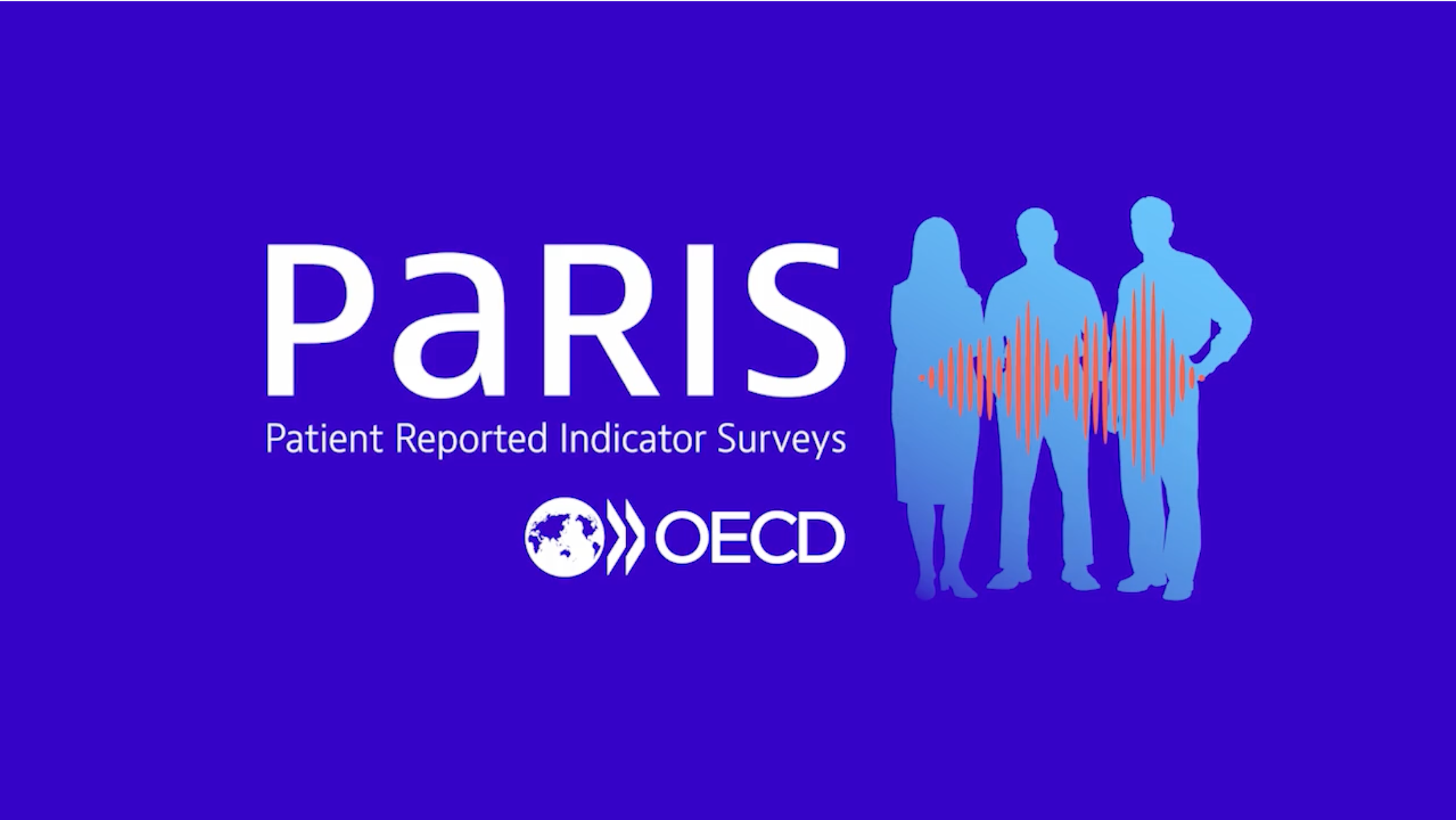WONCA & OECD: What Patients Say and Why It Matters to Family Doctors
 PaRIS Webinar Series
PaRIS Webinar Series
The OECD's Patient-Reported Indicator Surveys (PaRIS) initiative marks a turning point in how health systems evaluate primary care.
For the first time on a global scale, patients are at the centre of assessment—not just as recipients of care, but as essential
sources of insight. The PaRIS survey collects data on outcomes and experiences directly from people aged 45 and older with chronic conditions,
offering new benchmarks and lessons for healthcare improvement. For WONCA and the global family medicine community, this effort is deeply aligned with
our values: person-centred care, continuity, equity, and system effectiveness.
As Prof. Viviana Martinez-Bianchi, WONCA President-Elect, said during the second webinar: "This isn’t just a data collection tool—
it’s a mirror reflecting the essence of what we strive to do in family medicine... to care for people, not just diseases."
These webinars aim to amplify that reflection and help inform the future of primary care, worldwide.
You can also read about her panel remarks during the launch event of the OECD PaRIS report.
WONCA has supported the PaRIS initiative from the start. Dr. Candan Kendir, both a family doctor and OECD policy analyst,
explained this in her article
“Results from the Patient-Reported Indicator Surveys (PaRIS): Putting Patients at the Centre”, describing how WONCA contributed to early design
and fieldwork and how the results reinforce the core values of family medicine.
WONCA Webinar Series: Exploring the OECD PaRIS Survey Results
This three-part webinar series is hosted by the WONCA Working Party on Quality and Safety. It aims to highlight key findings from the OECD’s Patient-Reported Indicator Surveys (PaRIS) and support family doctors in using this data to advocate for stronger, more responsive primary care systems worldwide.
Webinar 1: Does Healthcare Deliver? A Global Look at Patient-Reported Data in Primary Care
The series opened with a presentation by Dr. Candan Kendir, OECD health policy analyst and family physician, who played a pivotal
role in the development of the PaRIS initiative. She introduced the methodology and results of the first survey cycle, which captured
data from over 107,000 patients and 1,800 primary care practices across 19 countries. The focus was on understanding patients'
physical and mental health, social functioning, well-being, and their confidence in managing their own care.
Dr. Kendir emphasized the need for data that reflects what patients value most: access, continuity, care coordination, and person-centredness.
One of the key findings was that while many countries deliver strong care experiences, gaps persist—especially in areas like care coordination,
self-management support, and information continuity. The results showed that patients with multiple chronic conditions often reported
lower well-being and trust in the healthcare system unless those areas were well addressed.
The webinar also laid out how countries can participate in the second cycle of the survey and why family doctors are critical to its success.
Kendir encouraged WONCA members to engage their Ministries of Health and national primary care networks to support implementation.
Her presentation highlighted the survey’s alignment with WONCA’s goals to strengthen primary care systems by listening to patients' voices
and using their experiences to guide policy and quality improvement.
Webinar 2: Patient Reported Outcomes and Experiences in Slovenia and Czechia
The second webinar featured Professor Zalika Klemenc-Ketiš and Professor Bohumil Seifert, who shared detailed findings from Slovenia and
the Czech Republic—two countries that scored highly in the PaRIS survey despite relatively modest health spending. Their results showed that
systems built on strong family medicine, trust, and long-term relationships between patients and providers can achieve excellent outcomes and experiences.
In both countries, over 75% of patients had been with the same family doctor for five years or more—a level of continuity associated with
higher satisfaction and better health outcomes. Slovenia excelled in public trust and physical health indicators, while Czechia stood out
in patient empowerment and perceived quality of care. Both demonstrated that efficient, person-centred primary care is not just ideal—
it is achievable, even in resource-constrained settings.
The presenters also reflected on lessons for the global community, including the importance of patient self-management support, measuring
what matters to people, and using these indicators to drive quality improvement at practice level. As both presenters noted, PaRIS provided
a rare opportunity to measure core values of family medicine—such as continuity, person-centredness, and comprehensiveness—and to benchmark
them internationally. Prof. Klemenc-Ketiš expanded on this in her WONCA article,
“What if patients could help you improve healthcare—not just for themselves, but for millions worldwide?”
Webinar 3: Measurements behind Patients’ Voices: PROMs and PREMs in OECD PaRIS
In the third webinar of the PaRIS series, Professor Jose Maria Valderas, Chair of WONCA’s Working Party on Quality and Safety, explored the analytical framework and survey instrument behind the OECD’s landmark Patient-Reported Indicator Survey (PaRIS). As one of the lead methodologists, Prof. Valderas explained how the survey was co-developed with patients, clinicians, and international experts, and refined through workshops in multiple languages and cultures to ensure relevance and comparability.
Drawing on data from over 107,000 patients across 1,800 practices in 19 countries, the PaRIS survey targets people aged 45+ with at least one chronic condition. It measures not only their health outcomes—physical and mental health, social functioning, general well-being—but also their care experiences, including access, continuity, self-management support, and trust.
Prof. Valderas described how the instrument was built using validated tools such as the WHO Well-being Index and PROMIS-10, and underwent rigorous translation and testing. He also shared insights into the OECD’s “PaRIS 10” indicators, and the striking variation between countries—particularly in self-management support, electronic information sharing, and coordination of care.
The presentation concluded with a forward-looking discussion on global equity. While the first cycle focused on high-income countries, Prof. Valderas noted that future iterations aim to include low- and middle-income settings. He encouraged family doctors to advocate for their country’s participation and use patient-reported data as a tool for both local quality improvement and system-wide reform.